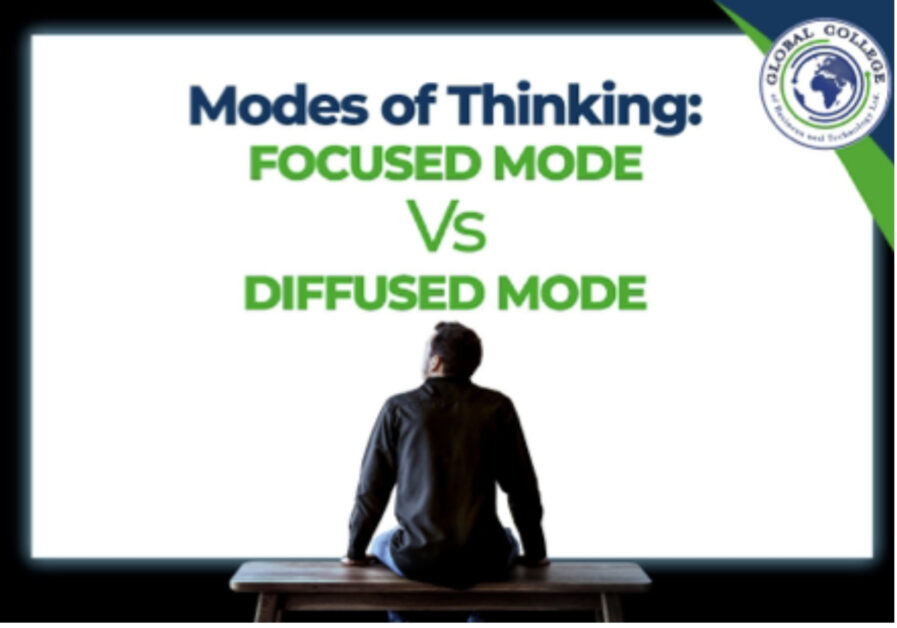
Can I Help You Spend Less Time on Studying?
Your brain needs updates as much as your phone does. You own the most powerful and complex tool for learning. You need to learn how to use its features to your advantage. Yes, I’m referring to your brain that processes all the thinking.
When others ace their learning, you can get insecure if you can’t keep up and lose interest. That shouldn’t be the case if you are aware of the two modes of thinking your brain can do.
Barbara Oakley, a professor and former Knowledge Project Podcast guest is credited with popularizing the concept of focused and diffuse forms of thinking. Oakley explains how these modes differ and how we switch between them throughout the day in her book- A Mind for Numbers. She emphasized how understanding this concept helped her become a professor in Engineering despite loathing Math and Science the most since she was young. She has identified that her inhibitions and unawareness stopped her from learning outside her inner passions. Just like her, you were not given a manual on how to use your brain effectively. She discovered that she had been putting her effort forth in the wrong way—like trying to open the lid of a container and turning it hard the wrong way. The lid is never going to come loose.
The most common mode of thinking that was hammered into us when we were young is called Focused mode. This is something that we are well aware of, to a fault. In Joe Ruhl’s Ted talk, he clarified why focusing for hours and hours can be detrimental to your learning. It affects your ability to retain the information that you are trying to learn. We try too hard to learn, especially when we have scheduled exams and evaluations.
Trying Hard
The focused mode is associated with the concentrating abilities of the brain’s prefrontal cortex, which is located directly behind your brow. You are in this mode when you think of precise thought. You are trying to connect a new concept to the familiar ones you have learned. Your mind does not allow any distractions. You frequently begin to process a problem by focusing your attention on familiar ideas—reading a book, reviewing lecture notes, and preparing for an exam.
Trying TOO Hard
The problem arises in this mode of thinking if you start to experience the Einstellung effect- an idea you already have in mind, or your simple initial thought, prevents a better idea or solution from being found. The Einstellung effect is a common stumbling block for learners.
Do you recall the times when you are pressured to come up with a great concept to work on, and you find yourself boxed in all the ideas that are all too familiar? No matter how hard you squeeze your thoughts to come up with a refreshing idea, you always end up with old, preexisting, and unimpressive ones.
When we get frustrated, we normally take a break. But notice how your great realizations and majestic ideas come to you while you are in the shower. Getting your mind to ease in this mode of thinking was thought and taught to be distracting to your learning, but that is not the case at all. A diffuse mode of thinking was not encouraged in traditional learning environments. We are all persuaded to think that effective learning only involves deep concentration. We haven’t proactively used diffuse mode of thinking to sharpen our potentials and make beneficial internalizing habits. You weren’t aware of the treasure hidden between the breaks your mind takes.
Taking a break for better retention
There are circumstances where you need to take a break and relax your mind after a frustrating attempt to deliver quality outputs. But most of us are less aware that creativity prospers in this mode of thinking. You now can identify it as a Diffuse mode of thinking. This thinking involves various parts of the brain. When you relax your mind from a hard concentration, it allows more ideas to present themselves that can formulate more high-quality ideas. It is usually active when you are taking a walk, showering, and daydreaming.
If you’re trying to understand or figure out something new, your best bet is to switch off your precision-focused thinking and activate your “big picture” diffuse mode, long enough to latch on to a new, more general understanding. In Joe Ruhl’s Ted talk, he emphasized the importance of taking a break after the prescribed 25-30 minutes focused mode period for better retention. Taking breaks being highly encouraged, certainly plays a big part in the success of your learning.
Now that you are made aware of these two modes of thinking and their limitations, you can avoid wasting time by correctly and immediately identifying which mode of thinking is best for the situation. You can start navigating between these modes of thinking; well assured that it has immense benefits to your learning apart from saving you a lot of frustration outbreaks.
No matter how great of a mind we have, if we don’t uncover its full potential, we put ourselves in the danger of settling for less than the greatness we are destined to achieve.
Part of Global College’s goal is to equip the students with the right knowledge and skills by providing print and online resources that meet industry standards; – with this in mind, we provide more information you can utilize to form solid and strong skills that you can rely on as you build your future. Since thinking is one of the foundations of learning, we provide awareness to the two modes of thinking as guidance to help you spend less time studying while making sure you can continue the process of internalizing the topics you have learned to provide creative, valuable output. In this way, we make sure we build strong learning retention that will be of great value to your future endeavors.
Let me leave this for you to ponder upon. It is essential to have good tools, but it is also essential that the tools should be used in the right way. – Author: Wallace D. Wattles
Oakley,B.2014. A Mind For Numbers. Penguin Group Penguin Group (USA) LLC.



